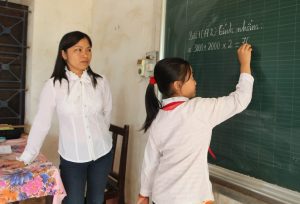L’impact de la crise sanitaire sur les entreprises et leurs organismes de formation (rapport)
French
Academic institutions
Research papers, synthesis reports, country and programme studies are collected from many academic institutions and national, regional and international professional associations.

Access to training

Access for all to good quality education, vocational training and workplace learning is a fundamental principle of social cohesion and economic growth. Some groups of people may require targeted attention if they are to benefit from education, training and employment opportunities.
This is particularly the case for disadvantaged youth, lower skilled workers, people with disabilities, and people in rural communities. The attractiveness of vocational education and training is enhanced when combined with entrepreneurship training and when public policies encourage utilization of higher skills by business.
Teachers, trainers and training organizations

At the heart of any skills system are the managers and staff of training institutions who face considerable challenges to deliver quality programmes at a time of fiscal constraint. As the expectations placed on institutions continue to grow, managers and trainers are increasingly expected to deliver flexible, responsive and current programmes based on strong partnerships with local employers that provide good employment outcomes. Because of this, there is a need for constituents to build the capacity of their institutional workforce to meet the expectations placed upon them by demand driven systems.
Case studies and good practices
Case studies that document good practices and illustrate the benefits and lessons learnt of particular approaches or methods in real practice.

Research papers
Working papers, reports, and other publications from international organizations, academic institutions and bilateral agencies. Research findings to stimulate informed debate on skills, employment and productivity issues.

Résultats d’une enquête auprès d’acteurs de terrain fin 2020
Ce rapport d’étude présente les résultats d’une enquête auprès de vingt entreprises de divers secteurs, tailles ou localisations en France métropolitaine, choisies pour avoir créé leurs propres organismes de formation. Un tel choix a été motivé par le fait de pouvoir disposer d’une double entrée d’observation des effets de la pandémie, simultanément sur des entités productives et sur des offreurs de formation. Cette étude a bénéficié de la participation financière de la DARES du ministère du Travail de l’Emploi et de l’Insertion dans le cadre d’un appel à projets de recherche (PIC 1 « L’impact de la crise sanitaire sur les compétences et la formation professionnelle », organisé par la DARES).
Access to training
Enterprises
Europe and Central Asia
